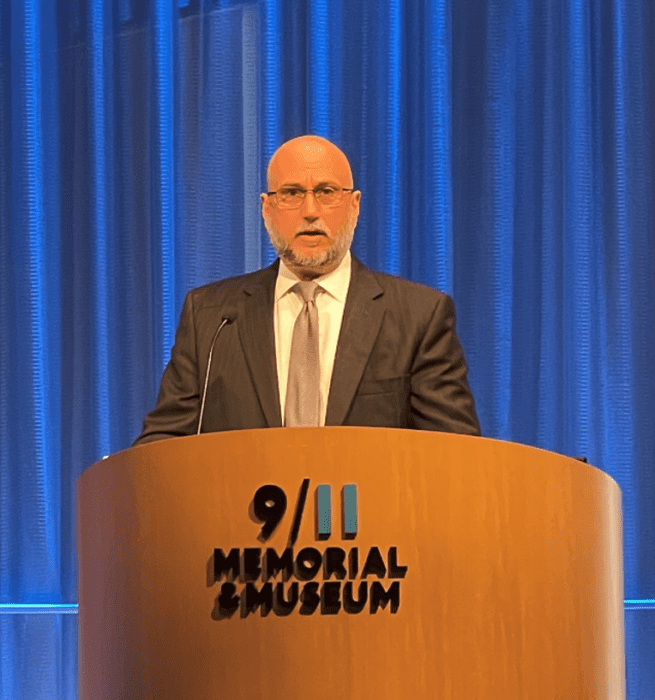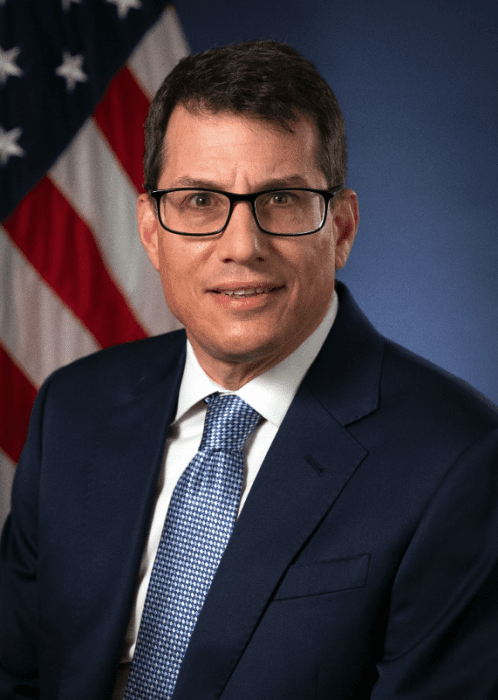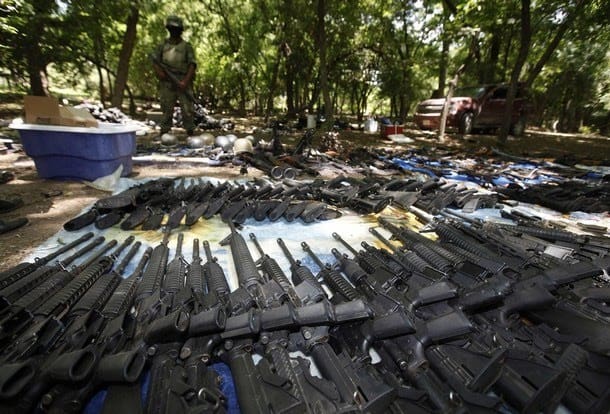The U.S. Attorney’s Office for Arizona is not prosecuting straw-purchase arrests with speed and vigor, which can allow weapons purchased illegally in the United States to “walk” across the border into Mexico, according to a retired ATF deputy assistant director who blew the whistle the first time this happened, in what became known as ATF’s “Operation Fast & Furious” scandal.
Peter J. Forcelli said the U.S. Attorney’s Office in Phoenix, which is overseen by U.S. Attorney Gary M. Restaino, suffers from a “culture of laziness and ineptness and a fear of getting beaten in court.”
Forcelli served at the Phoenix ATF Office from 2007 to 2011 before working his way up to a series of senior positions. He said Restaino’s office has long had a reputation for being “among the worst U.S. Attorney’s offices to deal with in the country.” Today, he said, little has changed.
“The U.S. Attorney is turning a blind eye to straw purchases, which is fueling what’s going on in Mexico,” Forcelli said. “The prosecutors who work there haven’t changed their ways. They have a habit of kicking the can down the road and not taking straw purchase cases. These are not purchasers who are buying guns for target shooters. These are guys who are sending guns to Mexico to slaughter human beings.”
The Mexican government sued several American firearm manufacturers arguing that the Protection of Lawful Commerce and Arms Act (PLCAA), which shields gunmakers from liability if their products are used in the commission of a crime, does not apply. Last month, a three-judge panel of the First U.S. Circuit Court of Appeals overturned a ruling from a lower court, which dismissed Mexico’s lawsuit after finding it violated the PLCAA.
In October 2021, President Joe Biden nominated Restaino as U.S. Attorney for the District of Arizona. In April 2022, Biden appointed him as acting director of the ATF – a temporary position Restaino held for nearly three months after Biden’s first attempt to shepherd his pick for ATF director, David Chipman, imploded during the Senate confirmation process.
Forcelli was a homicide detective for the New York Police Department before joining the ATF as a special agent. After serving at ATF’s Phoenix office, Forcelli rose through the ranks eventually becoming a deputy assistant director, where he was in charge of ATF operations for the Eastern United States. He has held leadership positions within ATF in Phoenix, Canada, Miami and at ATF Headquarters. He served as ATF’s head of training before retiring in October 2021.
Forcelli has written a book about his experiences titled “The Deadly Path: How Operation Fast and Furious and Bad Lawyers Armed the Mexican Cartels,” which will be released by Knox Press on March 5, and is now available for presale on Amazon and other retailers. The book details how he blew the whistle and paid a steep price.

Forcelli said the misconduct occurring in Phoenix mirrors the misconduct he witnessed during ATF’s original gunwalking scandal, “Operation Fast & Furious,” in which the Arizona U.S. Attorney’s Office and ATF’s offices in Phoenix and Tucson intentionally allowed Federal Firearm Licensees to sell weapons to illegal straw purchases from 2006 to 2011. ATF hoped they could track the weapons to Mexican drug cartel leaders, but by 2011 none of the cartel leaders had been charged. However, the weapons surfaced at crime scenes involving the deaths of hundreds of Mexican nationals and the 2010 murder of Border Patrol Agent Brian Terry.
Forcelli doesn’t have much of a history with U.S. Attorney Restaino.
“I never dealt with him in Phoenix. He was there during Fast & Furious, but wasn’t part of the case,” Forcelli said. “I have heard he’s personable and a likeable guy, but not a ball of fire.”
Forcelli said when he testified before Congress about Fast & Furious, then-Congressman Trey Gowdy, himself a former federal prosecutor from South Carolina, questioned him about the Arizona U.S. Attorney’s hesitancy to allow proffers – a standard legal tool that allows a suspect to offer some information so law enforcement can determine whether they want to extend formal cooperation in exchange for more information.
“They were sheepish about straw purchases and very hesitant to proffer anybody,” Forcelli said. “After I got back to Arizona, a supervisor from the U.S. Attorney’s Office literally met with me to redefine their definition of a proffer.”
Little has changed since he worked the Phoenix office, Forcelli said.
“They still don’t decline cases in writing. The declinations are made verbally. If the shit hits the fan, they can deny it. That’s the scam they pull,” he said.
Forcelli explained that ATF cases are presented to prosecutors in blue binders known as “blue jackets.”
“One sat on an AUSA’s windowsill for over a year in the Phoenix sun until it was bleached white,” he said.
As a result, Forcelli said some ATF agents would ask the Maricopa County Attorney’s Office to prosecute their cases.
“Special agents can’t be successful without a partnership with prosecutors,” Forcelli said. “If the agents are constantly told no, they can’t meet their full potential.”

No comment
Neither U.S. Attorney Restaino nor his spokespersons returned calls or emails seeking their comments for this story. In fact, no one involved in Arizona law enforcement was willing to comment about Forcelli’s allegations.
The National Border Patrol Council, the union for more than 18,000 Border Patrol Agents, did not return emails seeking comment.
Sgt. Joaquin Enriquez, a public information officer for the Maricopa County Sheriff’s Office said in an email, “I will need to do some research on this, but I will get with our detectives and get back to you.” No subsequent emails were received from Sgt. Enriquez.
The Maricopa County Attorney’s Office, which is the third-largest public prosecutorial office in the country, did not respond to calls or emails seeking comment.
Forcelli drew a sharp distinction between ATF special agents and their Industry Operations Investigators, or IOIs, whom Biden weaponized as foot-soldiers in his war against Federal Firearm Licensees.
“During my roughly 27 years with the ATF, I only met two special agents who I would say were anti-gun,” he said. “David Chipman was one of them.”
—Lee Williams for the Second Amendment Foundation’s Investigative Journalism Project





LOL
LMAO even.
…..ATF…[go along to get along]….hey, it’s a government job!….you don’t have to be good at it…..
On the one hand, we need stricter laws to clean up “gun crime.” On the other hand, don’t look while we sweep this under the rug. White man speak with forked tongue.
straw purchasing is the major source of guns in the street…but investigating and prosecuting it is hard work….better to just deny guns to everybody….seems to be their philosophy…..
Maybe because straw purchasers aren’t the baddies as far as the feds are concerned.
Reminds me of a senile old man who tore down the already weak door to a national border then blamed everyone else for it and for some reason can’t see all he needs to do is put the door back up. https://www.lawfaremedia.org/article/president-bidens-immigration-executive-actions-recap
No, that’s all the Republicans fault for not giving Braindead the ability to close the border.
Ummmm, what doesn’t he already HAVE at his disposal… all he’d need is a fucking pen !!
Traitor Joe doesn’t want the phucking pen, unless he’s using it to undermine this country. He’s the same fokwad that appointed an equal opportunity judge who doesn’t know what a woman is.
Maybe because some or many of the individuals involved in making and enforcing these laws are severely compromised by the cartels that now straddle the boarder. It’s not rocket surgery, these people are already corrupt, you just need to take the whole mess to the logical end.
i still straw purchase olde english 800 and brass monkey for deserving rapscallions.
I’ll take some my friend. Not sure if I qualify as a true rapscallion as I’m not totally familiar with the word tho sir
Are you a miscreant intent on tomfuckery?
If you answered yes, you qualify.
They turn a blind eye because they need crime to continue waving “Gun Violence” around in order to advance Gun Control. They know Public Perception of Gun Control remains positive. They also know Gun Owners and gun right orgs. are not educating the public about the History of Gun Control so for goody two shoes Gun Control it’s all systems go. To whom it may concern…If the truth of the matter upsets your slacker butt then you need to take up knitting.
I wouldn’t do a straw purchase for anyone, but I can’t get excited over the concept of straw purchases. “The right to keep and bear arms shall not be infringed.” Who is most likely to be barred from purchasing firearms? Oh – criminals. Well, maybe if we stopped worrying about how they got their weapons, and actually punish them for the real crimes they commit, we could get ahead of all the silly. If a guy can’t be trusted to carry a weapon, then maybe he shouldn’t be on the streets? Keep him locked up until he can be trusted. Or, just execute him if he committed a truly heinous crime.
No giant surprises in any of this, but the problems aren’t limited to Arizona. There is a national problem with AUSA’s ignoring gun charges against actual criminals while simultaneously being ardent about charging otherwise-honest citizens who are technically in violation of some obscure federal regulation.
Status offenses are routinely dismissed against criminals as part of sweetheart deals to get a guilty plea from serious criminals, but let a regular citizen make a mistake and he will face the full weight of the US government against him (often simply because they have nothing else to charge him with and no need for a plea because most honest citizens don’t have access to adequate legal defense).
wanna know why the house Republicans are not liking the border bill and will not pass it?
https://www.youtube.com/watch?v=ys7t6rx6-oQ
https://www.youtube.com/watch?v=8IfsMuUG8AE
smitch>hoohah>$3banana
m, ftd.
If they won’t even look at straw purchases then I guess “Don’t lie for the other guy” is over. Ok. Bass Pro Shop can now allow someone to pay for a spouces’ firearm when they are both there are the same time and are both perfectly legal.
This certainly sounds like a form of gun control that has been thrown out with the trash so I’m not sure why anyone would be upset.
Guy is a hard core prog. https://en.wikipedia.org/wiki/Gary_M._Restaino
A “former” ATF thug says?
restaino is a puppet
he does what the regime tells him to do
GO FIGURE ?
FIGURES LIE WHEN LIARS FIGURE.
Why would a Democrat prosecutor want to charge and prosecute a criminal when there are so many Republicans they want jailed?
Federal Prosecutors are too busy tracking down every last attendee of the January 6, 2021 Peaceful Capitol Protest.
I’ve been saying this all along. The Feds by and large, DON’T prosecute “straw buyers”. Hell, rarely do they prosecute a felon with a gun. They have a “bigger job” in trying to convict Dona;d Trump.
Comments are closed.